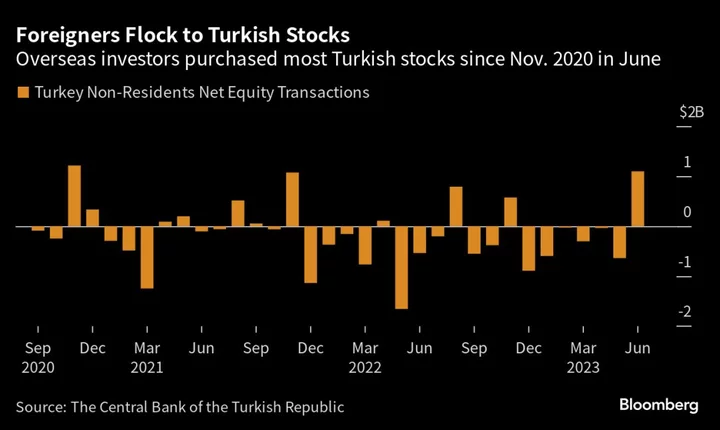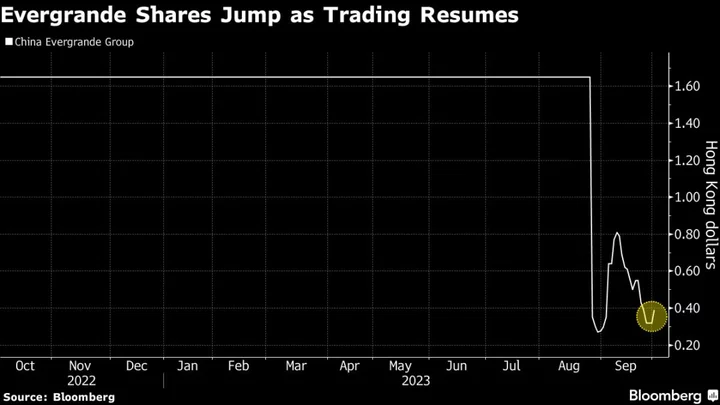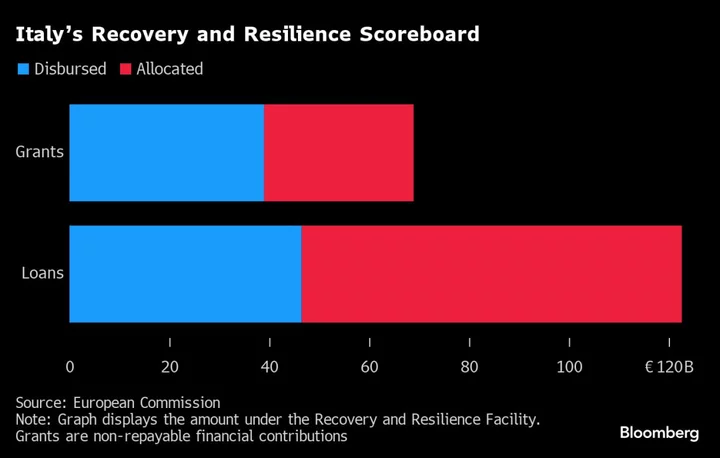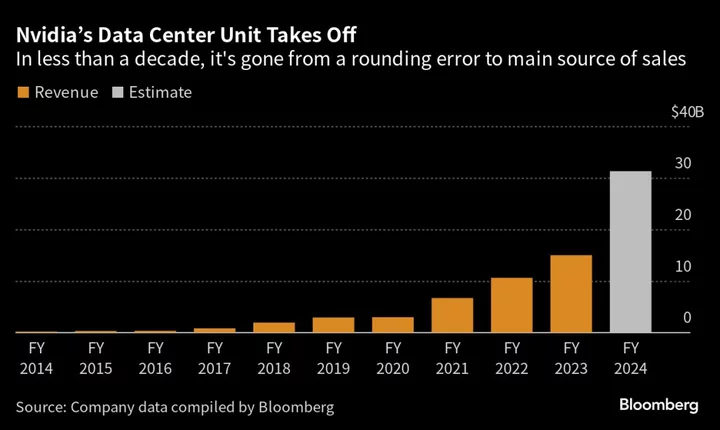Overseas investors bought up Turkish equities at the fastest pace in 31 months since June on hopes for a return to more orthodox economic policies.
Foreign investors bought a net $1.1 billion of Turkish stocks last month, according to central bank data calculated by Bloomberg. That’s the biggest monthly inflow since November 2020.
Hopes for a U-turn in policies have reemerged after newly reelected President Recep Tayyip Erdogan appointed two former Wall Street bankers, Mehmet Simsek and Hafize Gaye Erkan, to run the country’s finances.
There is a sense of deja-vu about it. The last time foreign investors turned this positive in late 2020 was after Erdogan appointed Naci Agbal as new central bank governor in a surprise flip to more orthodox policies. The renewed confidence didn’t last long. Agbal was fired four months later.
Last month’s inflows helped fuel a 18% gain in the country’s benchmark Borsa Istanbul 100 Index, putting the nation’s stocks among the top performing equity indexes worldwide. Still, in dollar terms stocks tumbled 6.2% amid a slump in the lira as authorities eased currency market interventions.
While both Simsek and Erkan have advocated gradual changes and the central bank’s first rate hike in two-years trailed expectations, inflows in June suggest foreign investors may be ready to give them a welcome as a “first-step” in the right direction.
Gradual policy normalization “reflects the intention to return to a more orthodox policy environment which increases confidence of investors,” said Sebastian Kahlfeld, a portfolio manager at DWS Investment. Even an underwhelming start “hailed the return of more conventional economic policies.”
HSBC raised its recommendation for Turkish equities to overweight on Wednesday from neutral and said gradual pace of policy changes may make the country’s stocks more attractive to foreign investors by making it easier for them to build positions.









